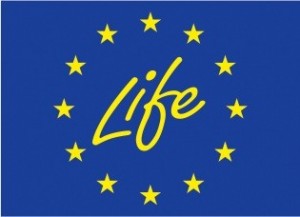Design and development of a demonstrative pilot plant to recycle indium and yttrium
from discarded flat panels
Nowadays the amount of wastes from electric and electronic equipment (WEEEs) generated in Europe is about 13 million tons/year (13% of urban wastes). Recent studies foresee that this amount will be increased about 3-5% annually in the coming decades.
Specifically flat panels will have special relevance. In Europe around 150.000 tons of flat panels are collected every year, from which120.000 are LCD and 30.000 are plasma. These emerging wastes will presumably be a problem in coming years, when their useful life finish, reason why the management of these wastes represents a great challenge in the recycling industry.
Currently only one third of WEEEs are collected and treated according to European Directives, and specifically recovery and recycling of valuable metals and rare earths represent just a 3%.
On the other hand, 13% of these wastes are directly sent to landfills, burnt or simply left elsewhere, while 54% is illegally exported to Third World Countries or treated in non-authorized plants in the EU.
All these facts, together with the excessive increase on the demand of critical materials are causing that the demand remains highly above the offer. Nowadays the supply of these materials is mainly controlled by China, which for instance controls 53% of the worldwide production of indium and 99.9% of the production of yttrium. When in 2005 the Chinese Government limited exportations of its RE to the rest of countries, the supplies were hardly affected, causing the implementation of new uncontrolled extraction mines out of China and unsafe procedures for processing them.
In this situation, the design and development of a demonstrative pilot plant to recycle discarded FPDs in order to recover valuable metals will very positively contribute to solving the aforementioned drawbacks, contributing on one hand to enhancing the recycling of WEEEs, especially FPDs, and reducing the environmental impact caused by the extractive activities of these critical metals, and on the other hand to opening a secondary source of raw materials for the EU, reducing its dependency from China.
 The LIFE RECUMETAL Project, with contract number LIFE14 ENV/ES/000450, counts on a total budget of 881.520,00€, from which 486.432,00€ are funded by the European Commission through the LIFE+ Programme.
The LIFE RECUMETAL Project, with contract number LIFE14 ENV/ES/000450, counts on a total budget of 881.520,00€, from which 486.432,00€ are funded by the European Commission through the LIFE+ Programme.
The Project started in September 2015 and will be developed during 42 months until February 2019.



